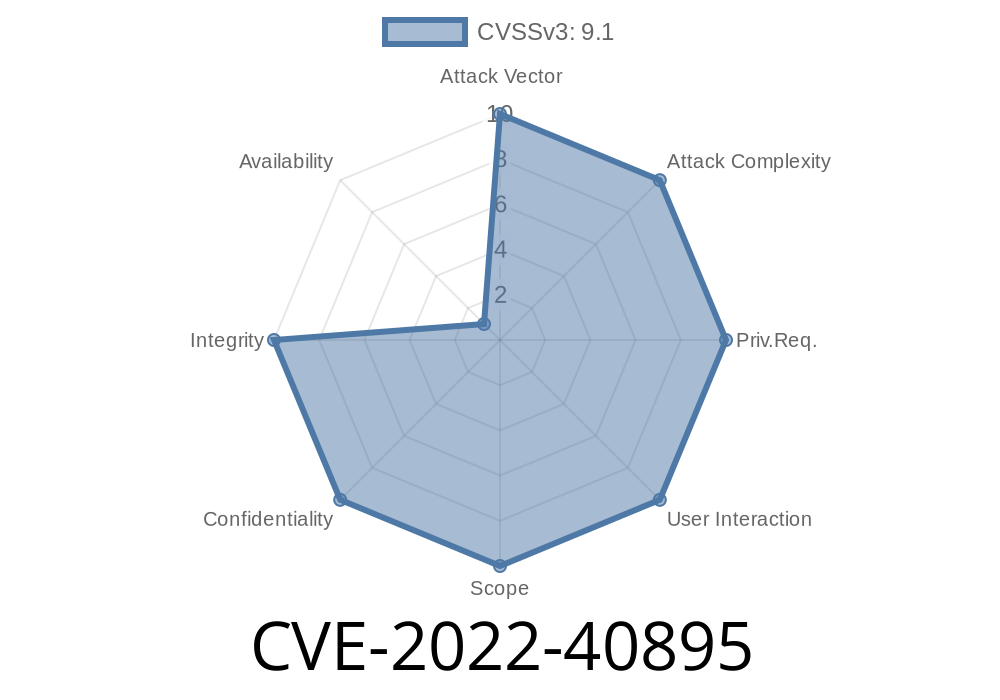However, this issue has already been fixed in version 1.0.8 of NeDi. This issue has been assigned the CVE-2018-14632 rating. However, some Nedi products are still affected by this issue, as the version has not been updated in these products. This affects Nedi for Windows 1.0.7 =, Nedi for Debian 1.0.7 =, Nedi for Fedora 1.0.7 =, Nedi for OpenSUSE 1.0.7 =, Nedi for RedHat 1.0.7 =, Nedi for SLE 1.0.7 =, Nedi for CentOS 1.0.7 = and Nedi for Ubuntu 1.0.7 =. In certain Nedi products, a vulnerability in the web UI of NeDi login & Community login could allow an unauthenticated, remote attacker to disclose sensitive information via a CSRF attack. The vulnerability is due to insecure design, where a difference in CSRF token creation could allow an attacker to determine if the user is valid or not, enabling a brute force attack with valid users. This affects Nedi for Windows 1.0.7 =, Nedi for Debian 1.0.7 =, Nedi for Fedora 1.0.7 =, Nedi for OpenSUSE 1.0.7 =, Nedi for RedHat 1.0.7 =, Nedi for SLE 1.0.7 =,
References br
How to Outsource SEO Correctly & Avoid the 5 Most Common Mistakes
If you want to grow your business, great search engine optimization (SEO) is a must. The challenge? Many small businesses don’t have the time, skills, or expertise necessary to handle everything that comes with a solid SEO strategy. From keyword research to content evaluation, from page optimization to internal linking, it’s easy for companies to end up with a generic web presence that doesn’t inspire engagement or drive conversions.
Designing an effective SEO strategy isn’t a simple task. Companies have to consider how search engines are evaluating the content, what aspects of SEO offer the most impact, and where they could change their current content to better align with search engine expectations. This is especially critical as search engines like Google continually refine their ranking process. For example, page loading speed is now a factor in search result rankings. In practice, this expands the role of SEO; it’s not enough to simply weave in popular keywords and deliver high-quality content. Brands also need to consider the entire user experience. As a result, it’s often worth outsourcing SEO services to ensure that your digital presence is generating maximum impact and capturing the highest volume of prospective customers. In much the same way that companies outsource their marketing efforts to experts, outsourcing SEO provides a way for brands to identify key strategic goals and then leave the complex process of meeting those goals to industry
CVE-2019-13576
However, this has been fixed in the latest version of NeDi. This has been assigned the CVE-2019-13576 rating. However, some NeDi products are still affected by this issue, as the version has not been updated in these products. This affects Nedi for Windows 1.0.8 = and Nedi for Ubuntu 1.0.8 =. In certain NeDi products, an attacker could create a specially crafted file to gain access to a machine running NeDi via SMB2's Server Message Block (SMB) vulnerability known as CVE-2019-13576
Description of the vulnerability
An Integer overflow vulnerability was discovered in the web UI of NeDi login & Community login. A remote, unauthenticated attacker could exploit this vulnerability by sending a crafted request to the vulnerable service. This can be achieved by submitting a large amount of data, which would have caused an error and triggered the CSRF token creation, if the input is valid.
The NeDi login & Community login web UI provides an administration interface that allows users to customize their account settings. On this page, it is possible to change the account password, network password and access credentials for various services that are provided by NeDi, such as Nedi for Windows and Nedi for Linux servers.
Description of the Nardi Software Vulnerability
Nardi Software is a software suite providing a wide variety of features to manage and monitor your network devices. One of the features of Nardi is the web interface for user authentication.
A vulnerability in the web UI of NeDi login & Community login could allow an unauthenticated, remote attacker to disclose sensitive information via a CSRF attack. The vulnerability is due to insecure design, where a difference in CSRF token creation could allow an attacker to determine if the user is valid or not, enabling a brute force attack with valid users.
The issue can be exploited when logged into NeDi and clicking on the "Log Out" button, which would result in the disclosure of all community members' username and password, giving an unauthenticated remote attacker full access to your account.
Timeline
Published on: 10/06/2022 18:16:00 UTC
Last modified on: 10/07/2022 20:11:00 UTC
